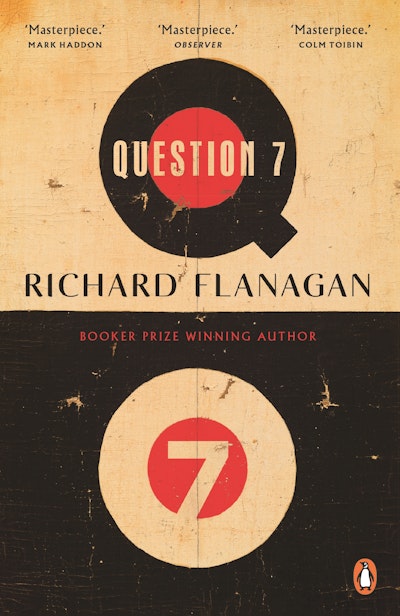- Published: 31 October 2023
- ISBN: 9781761343452
- Imprint: Knopf Australia
- Format: Hardback
- Pages: 288
- RRP: $35.00
Question 7
Extract
There was no photograph of slave labourers.
The woman was kind and, as they say, a fount of knowledge about local history. She had never heard of slave labourers working at the Ohama coal mine. It was as if it had never happened, as if no one had ever been beaten or killed or made to stand naked in the snow until they died. I remember the woman’s tolerant smile: a smile of pity for me thinking there had ever been slave labourers at the Ohama coal mine.
2
Sometimes I wonder why we keep returning to beginnings—why we seek the single thread we might pull to unravel the tapestry we call our life in the hope that behind it we will find the truth of why.
But there is no truth. There is only why. And when we look closer we see that behind that why is just another tapestry.
And behind it another, and another, until we arrive at oblivion.
3
At 8.15 am on 6 August 1945, bombardier Major Thomas Ferebee released a lever 31,000 feet over Hiroshima, said ‘Bomb away!’, and forty-three seconds later 60,000 people died while eighty miles to the south my father, a near-naked slave labourer in his fourth year of captivity as a prisoner of war, continued with his gruelling work pushing carriages of rock up long dark tunnels that ran under the Inland Sea.
Broken, ill, body and will near the end, knowing only that when in a few months the winter cold returned he could no longer endure and would die, he was unaware that he was now going to live. As my father made his way along the bleak mine tunnel only very occasionally punctuated with dim electric light bulbs a fellow Tasmanian POW remarked that it looked like his hometown of Penguin on a Friday night.
4
At the mine-head entrance, where my father and his fellow slave labourers once ran the gauntlet of guards who beat them as they passed, there now stood a love hotel. There was no memorial, no sign, no evidence, in other words, that whatever had once happened had ever happened. There was some neon signage. There was a business that catered for quick opportunistic sex in tiny rooms that allowed for sexual release and deliberately little else. What remained, or rather what existed, was only the oblivion of pleasure in another’s arms—the same oblivion that simultaneously prefigures and denies death. As if the need to forget is as strong as the need to remember. Perhaps stronger.
And after oblivion? We return to the stories we call our memories, perplexed, strangers to the ongoing invention that is our life.
5
Next to me that bitter day there stood an elderly Japanese man, Mr Sato. He was tiny and frail, neatly dressed in a sports blazer and dress pants too long in the cuff from where, I assumed, he had shrunk with the passing of years. His hands were covered in thin white cotton gloves, and when he pointed out some long-vanished feature of the camp and mine below, all I saw was a loose thread dangling from the glove’s cuff. I don’t remember his shoes. Mr Sato’s head came to my chest. He lived and cared for a daughter who, I was told by the translator, was very disabled. Mr Sato had once been a guard at Ohama Camp. He showed me where the barracks had been, the farm up the hill, the mine head downhill, closer to the sea.
In front of us, to my embarrassment and unspoken anger, were a tv crew and several photographers from local newspapers. I had gone through a series of contacts to be at the mine head, and somehow the local council had become involved. Without my knowledge they had asked the media along. The tv crew and newspaper journalists wanted one thing: Mr Sato and I embracing, an image of forgiveness, of understanding, of time healing. That would be, I knew, a lie. It wasn’t for me to forgive.
Does time heal? Time does not always heal. Time scars. Mr Sato’s gloved hand was raised, pointing, the cold world below bisected by an unravelling thread.
